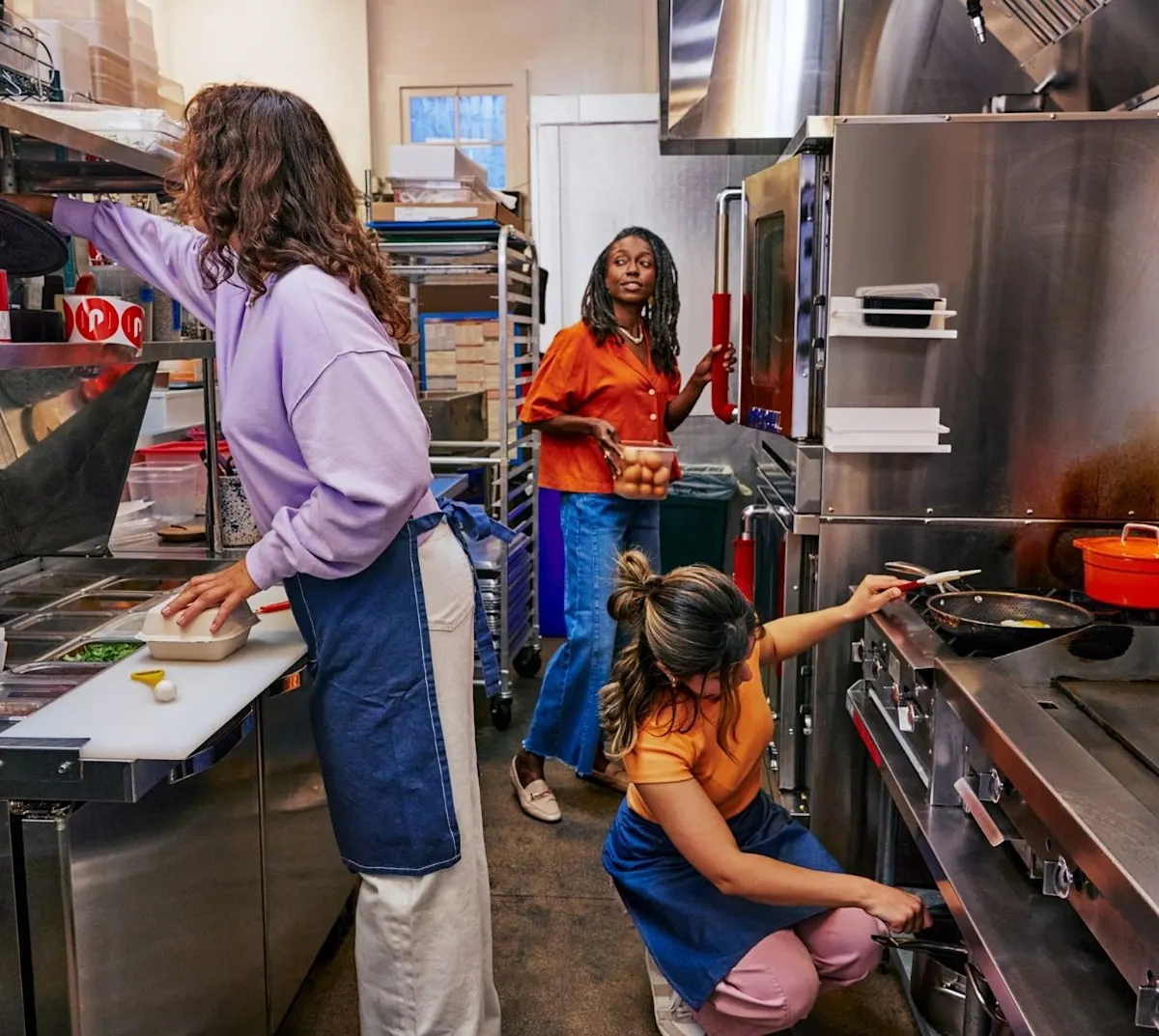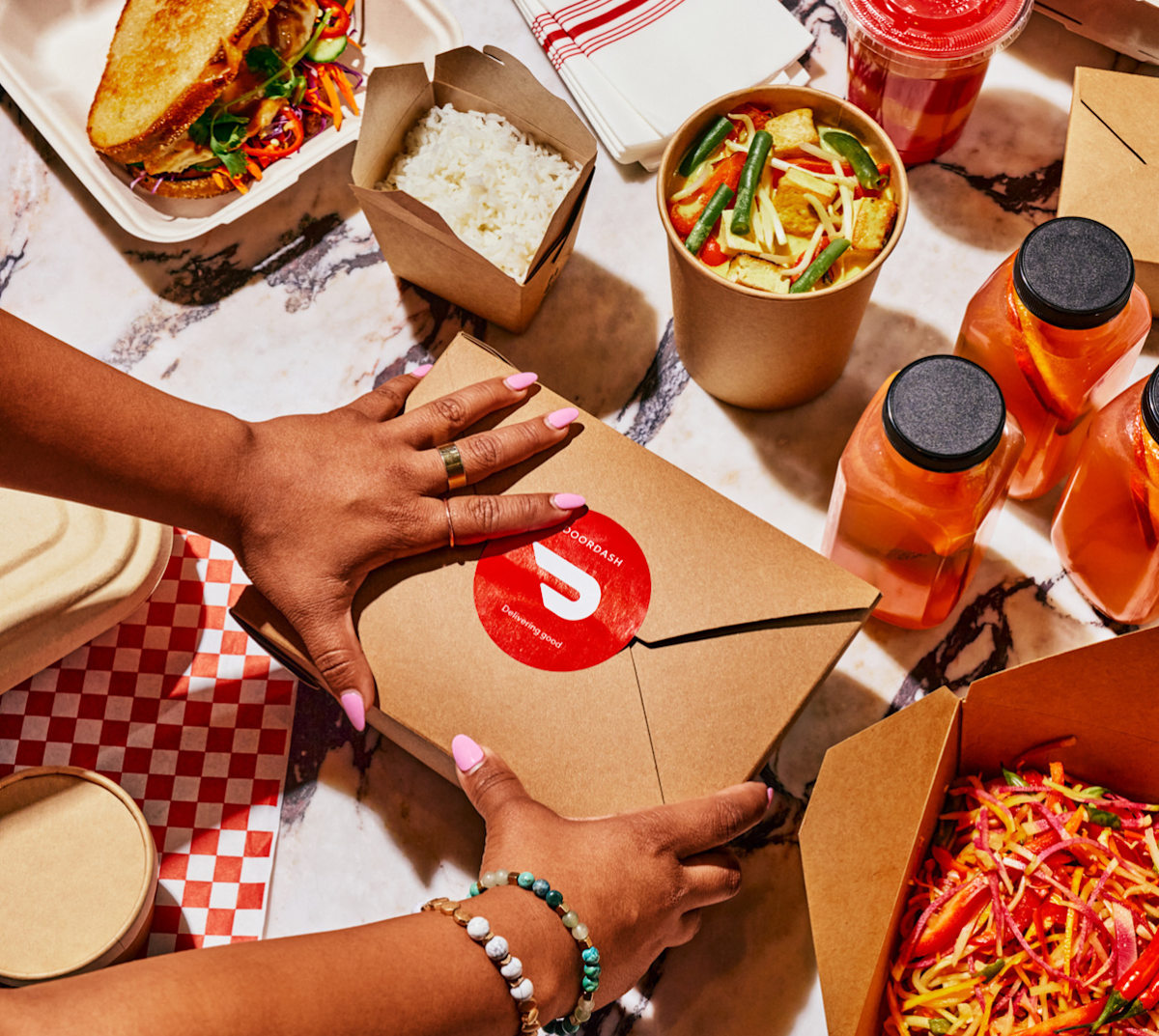The opportunity to franchise your restaurant is an attractive deal — it can offer strong branding, built-in marketing, and full-fledged operational support. But with challenges like financial obligations and strict guidelines, it's essential to assess whether a franchise model aligns with your business goals and management style. Here, we weigh the pros and cons of owning a franchise restaurant, plus key considerations for next steps.
Pros of running a restaurant franchise
Franchising is one of the most efficient ways to expand your restaurant business. From loyal patrons to reduced financial risk, here are the top benefits of turning your eatery into a restaurant franchise.
Brand awareness
As a restaurant owner, you know that a loyal customer base is at the heart of any successful business — it's likely the reason you've considered franchising.
An already-established brand can make it easier to attract patrons to new locations, reducing the time and effort needed to build trust. Plus, customers familiar with your menu and service are more likely to visit franchise locations and drive sales from day one — letting you attract new patrons and keep growth on a steady incline.
Easier financing
Because of their proven track record and lower failure rates, it's widely recognized that franchise restaurants are more likely to secure independent business loans. Standardized operations also lead to cost efficiencies in purchasing, staffing, and training — reducing overhead and presenting a lower-risk investment to current and potential franchisees.
Revenue growth
Unlike independent restaurants that are at the mercy of building everything from scratch, franchise restaurants benefit from a structured, replicable business model that has been refined over time. In other words: the business model gained is a well-oiled machine that can both reduce the risk of failure and accelerate revenue generation when implemented successfully. This includes systems like fast food chains ensuring every burger is made the same way, or pre-approved, A/B-tested marketing materials for consistent branding across locations.
Lower inventory costs
It's simple math: restaurant franchise = collective buying power = lower inventory costs. Purchasing ingredients and supplies in bulk often lets franchisors negotiate lower prices than independent restaurants. The result? Boosted profit margins and maintenance of competitive pricing, without sacrificing quality.
Community impact
A new restaurant franchise on the block has been proven to benefit communities in more ways than one. In 2025, these businesses are projected to contribute an additional 16,100 new jobs to the US. With steady wages and career growth opportunities, the decision to franchise directly supports economic health locally and nationally.
Beyond employment, franchise restaurants bring variety to their communities — like BarBurrito adding a new restaurant location in Banff to its 300+ locations across Canada. Some even partner with local suppliers, sponsor events, and support local charities to further their impact.
Cons of running a restaurant franchise
While there are many benefits to franchising, it's not without a few challenges. Here are a handful of things budding franchisers should keep top-of-mind.
Large initial investment
The ability to reproduce your restaurant often requires significant upfront costs, including franchise fees, location setup, and equipment. Because of this, business owners need to be in good financial standing — especially to attract willing investors.
Increased quality assurance
Since franchisees run their own locations, maintaining a perfectly consistent brand and customer experience across stores can be a challenge. A poorly managed franchise location can damage the entire brand’s reputation, requiring business owners and management to regularly check in on the action.
Limited innovation
The need for menu standardization and consistency is key for any restaurant franchise. While this ensures customers receive the same experience at every location, it may limit your ability to get creative with the menu or introduce new dishes regularly. To keep things fresh, some franchises will offer seasonal specials or localized menu options that give them the opportunity to innovate within a franchise's more structured menu framework.
Franchisee relations
Managing a franchise and maintaining strong relationships with franchisees can be demanding, especially for those without prior industry experience. Franchise owners must provide ongoing training, operational support, and quality control protocols to ensure consistency across locations. Without prior knowledge, navigating challenges like staffing, supply chain logistics, and customer service can be overwhelming — making it essential to develop strong leadership skills, clear communication, and a willingness to learn the complexities of running a multi-location business.
How to franchise a restaurant: Key considerations
After evaluating both the benefits and challenges, here are some key factors to consider for restauranteurs looking to franchise:
Strong branding: A restaurant needs to be known and loved to warrant expansion. In addition to customer trust and loyalty, a necessary step when franchising is trademarking your name, logo, tagline, and any other prominent identifiers.
Operational consistency: A demonstrated history of uniform quality and service, and the potential to carry this across multiple locations.
Replicable menu: Your menu is easy for franchisees and their staff to replicate.
Financial planning: Detailed financial planning and realistic expectations are foundational to manage cash flow and operational costs effectively.
Technology: Many franchises adopt restaurant technology, like online ordering capabilities with DoorDash, to streamline operations and help increase profits.
Training and support: Comprehensive training programs and continuous support from effective management are vital for franchisee success.
Adaptability: While maintaining brand consistency, franchises must also adapt aspects like their menu and prices to suit local market preferences.
To learn more — including firsthand insights from a pizza franchise owner — read: How to Franchise a Restaurant: Advice from a Successful Franchise Operator.
Third-Party Delivery Helps Franchise Owners Succeed
The takeaway? Deciding to franchise your restaurant is in your ability to weigh the pros and cons. Are you in good financial shape? Is your menu replicable? Do you have the necessary experience to take on the challenge?
Whether or not a restaurant franchise is right for your business, DoorDash offers a range of solutions and support to help your business reach its full potential. Explore Online Ordering to grow your customer base, streamline processes, and (if it's in the cards) become franchise-ready.



